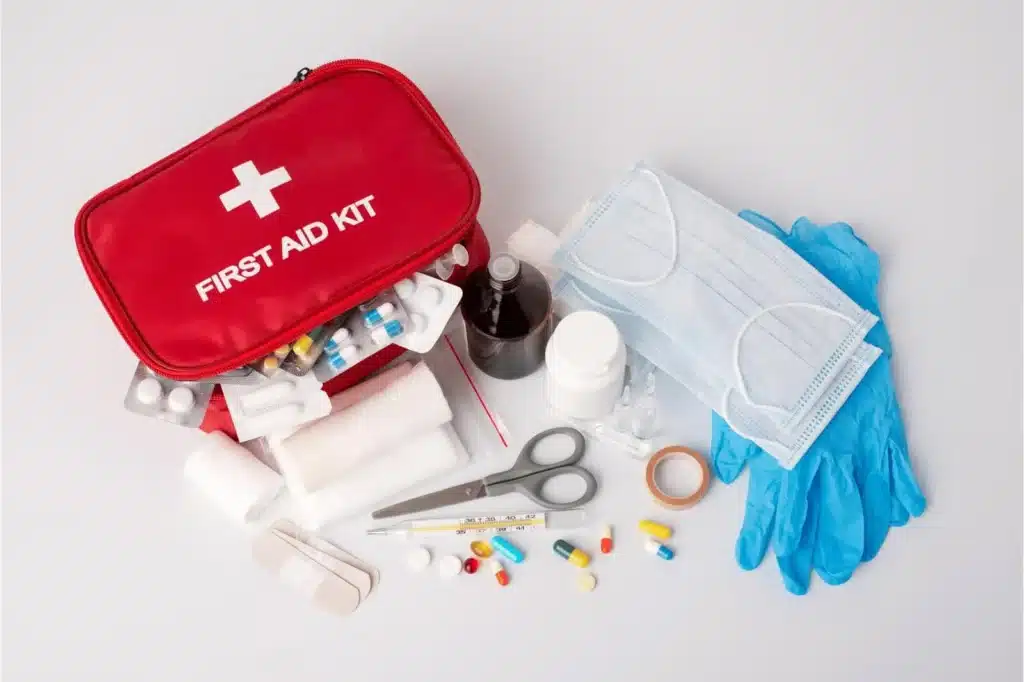Following the tips for maintaining oral health at home makes a big difference. Learn how working on oral hygiene tips can give you a healthy and radiant smile.
Maintaining oral health at home is essential for a dazzling smile. Let’s explore tips for maintaining oral health at home. Learn how daily routine and dietary choices can make a big difference.
Daily Oral Care Routine
A daily oral care routine is among the best tips for maintaining oral health at home. See how you can adopt a healthy oral strategy on a daily basis for a healthy smile.
Brushing Techniques
Selecting the right toothbrush and toothpaste is crucial. Choose a soft-bristle brush to avoid damaging your gums and enamel. Toothpaste with fluoride helps prevent cavities. Brushing twice daily for two minutes ensures a thorough clean. Gentle, circular motions cover all tooth surfaces, including nooks and crannies. Replace your toothbrush every 3-4 months.
Flossing for Healthy Gums
Flossing is vital for gum health. It removes food particles and plaque between teeth, preventing gum disease and cavities. Use about 18 inches of floss, gently sliding it between teeth and curving it against each tooth’s surface. Ideally, floss once a day for consistent benefits.
Using Mouthwash
Choose a mouthwash that suits your needs, like antibacterial or fluoride varieties. Use it after brushing and flossing, swishing for 30 seconds. No need to rinse afterward. It is one of the best tips for maintaining oral health at home.
Diet and Nutrition
Among tips for maintaining oral health at home, eating a balanced diet is the most important.
Impact of Diet on Oral Health
Foods promoting healthy teeth and gums include crunchy fruits and vegetables, dairy products, and lean proteins. Avoid sugary and acidic foods, which can harm your dental health.

Importance of Hydration
Proper hydration keeps your mouth moist and washes away bacteria. Drink plenty of water throughout the day for a hydrated and healthy smile.
Avoiding Harmful Habits
Following tips for maintaining oral health at home requires strict restrictions from harmful substances.
Quit Smoking
Smoking adversely affects oral health, including tooth staining, gum disease, and oral cancer. Seek support and resources to quit smoking for a healthier mouth.
Limit Alcohol and Sugary Beverages
Excessive alcohol and sugary drinks can harm teeth. Minimize their consumption, and when you indulge, rinse your mouth with water afterward to reduce their impact.
Protecting Teeth at Night
Nighttime can be a battleground for your teeth, but there are tips for maintaining oral health at home.
Teeth Grinding (Bruxism)
Understanding the causes and signs of bruxism is the first step. Stress, anxiety, and misaligned teeth can trigger grinding, leading to headaches and worn-down enamel. Solutions include stress management techniques, mouth exercises, and relaxation therapy. Preventive measures involve avoiding caffeine and alcohol before bed and a custom-fitted nightguard.
Nightguards
Nightguards play a crucial role in safeguarding your teeth. These dental appliances act as protective shields, preventing direct contact between your upper and lower teeth during grinding. To get a custom-fitted nightguard, consult your dentist. They’ll take impressions of your teeth to create a comfortable and effective barrier.
Emergency Oral Care
Oral emergencies can strike unexpectedly, and knowing how to respond can make all the difference. Here are some tips for maintaining oral health at home and managing dental emergencies:
Dealing with Common Emergencies
When a dental injury occurs at home, it’s crucial to act swiftly. For minor issues like a knocked-out tooth, gently rinse it and try to place it back in its socket. If that’s not possible, store it in a container of milk or saliva and seek immediate dental care. Don’t delay for severe pain or sudden swelling; contact your dentist immediately. They can provide guidance or arrange an emergency appointment.
First Aid Kit Essentials
Having a well-equipped dental first aid kit at home is wise. Essentials include sterile gauze, dental wax, a small container with a lid, and an over-the-counter pain reliever. In case of a broken tooth, rinse your mouth, apply dental wax if there are sharp edges, and use the container for storing any tooth fragments. Pain relievers can offer temporary relief until professional help is available.

Regular Dental Check-Ups
Regular dental check-ups are not just a formality. They’re your best defense against oral issues. Here’s why they matter:
Importance of Dental Check-Ups
Professional dental care goes beyond brushing and flossing. Dentists can spot early signs of problems like cavities or gum disease, preventing them from worsening. Regular check-ups also include professional cleanings, keeping your oral health in top shape.
Finding the Right Dentist
Choosing the right dentist is crucial for a positive dental experience. Look for a dentist who aligns with your needs, whether a specialist or a family dentist. Building a comfortable dentist-patient relationship fosters trust and encourages open communication.
Conclusion
Hope now you know the tips for maintaining oral health at home. Follow the instructions carefully and get a healthy and bright smile. Always consult your dentist in case of emergency to avoid any severe infection. Contact Dentalsway for more information on oral health. We are always happy to help you.


